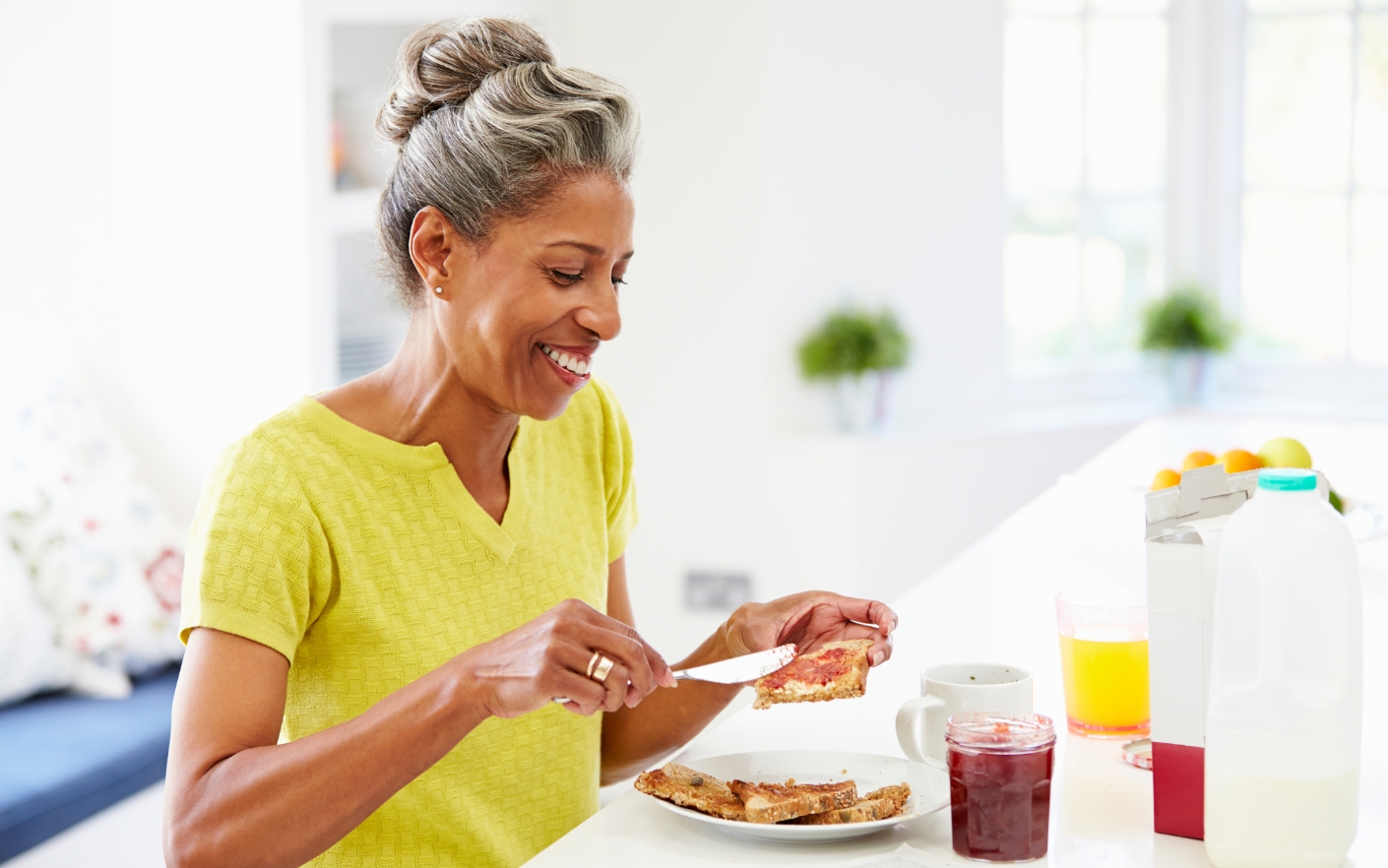Low GI breakfast fix: blood sugar still spiking? here's why

You're eating "low glycemic" breakfasts but still getting blood sugar spikes. This troubleshooting guide identifies the 7 hidden saboteurs causing the problem and provides specific fixes to get your morning blood sugar under control.
Table of contents
- The frustrating reality: "healthy" breakfasts that don't work
- The 7 hidden breakfast blood sugar saboteurs
- Saboteurs #1-3: portion, carb overload, and timing mistakes
- [PREMIUM] 4 more hidden saboteurs: stress, medications, and sensitivities
- [PREMIUM] Individual response testing protocols
- [PREMIUM] Meal modification strategies and advanced timing
- [PREMIUM] Emergency management and personalized breakfast formulas
The frustrating reality: "healthy" breakfasts that don't work
You've done everything right. You're eating oatmeal with berries instead of sugary cereal. You've switched to whole grain toast with avocado. You're having Greek yogurt instead of a muffin. These are supposed to be "low glycemic" choices.
But when you test your blood sugar an hour after breakfast, it's still spiking to 160, 180, or even 200 mg/dL. You feel that familiar energy crash by 10 AM. The afternoon cravings are still there. Your doctor says your A1C needs to come down, but nothing seems to be working.
Many foods labeled as "healthy" or even "low glycemic" can still cause significant blood sugar spikes, especially in people with insulin resistance, prediabetes, or diabetes. The problem isn't your willpower or your body being "broken" - it's understanding the hidden factors that affect your individual blood sugar response.
The 7 hidden breakfast blood sugar saboteurs
#1: Portion distortion
The problem: Even low GI foods can spike blood sugar if you eat too much
Common example: 1 cup of steel-cut oats has a low GI, but it's still 60g of carbohydrates - enough to spike blood sugar significantly
Your breakfast might be:
- 1 cup cooked oatmeal (30g carbs)
- 1 medium banana (27g carbs)
- 2 tablespoons honey (34g carbs)
- Total: 91g carbs (enough to spike blood sugar to 200+ mg/dL)
The fix: Low GI doesn't mean unlimited portions
- Limit total carbs to 15-30g at breakfast
- Focus on 1/3 cup cooked grains maximum
- Choose lower-carb fruits like berries
- Use protein and fat to create satiety, not more carbs
#2: The "healthy" carb overload
The problem: Stacking multiple "healthy" carbs in one meal
Common combinations that spike blood sugar:
- Oatmeal + fruit + whole grain toast
- Greek yogurt + granola + banana + berries
- Smoothie with multiple fruits + oats + honey
Hidden carb sources you might not count:
- Milk in coffee or cereal (12g carbs per cup)
- "Healthy" granola (30-40g carbs per 1/2 cup)
- Large apples (25g carbs each)
- Dried fruits in trail mix (concentrated sugars)
The fix: Choose ONE carbohydrate source per meal
- Either oatmeal OR fruit, not both
- Either toast OR yogurt with berries
- Make protein and vegetables the stars, carbs the supporting cast
#3: Timing and sequence mistakes
The problem: When and how you eat affects blood sugar as much as what you eat
Common timing mistakes:
- Eating carbs first, protein last
- Consuming large amounts of liquid with meals
- Not spacing meals appropriately
- Exercising immediately after eating
The blood sugar sequence that works:
- Drink water 30 minutes before eating
- Eat protein first, then vegetables
- Eat any carbohydrates last and smallest portion
- Wait 30-60 minutes before intense exercise
The fix: Protein and vegetables first, carbs last
- Start with eggs, then add vegetables
- Finish with small portion of berries or low-carb toast
- This sequence can reduce blood sugar spikes by 30-40%
Become a member to access
Get instant access to:
✓ 4 more hidden saboteurs
Including stress effects, medication timing, and food sensitivities
✓ Individual response testing protocols
How to identify YOUR specific blood sugar triggers
✓ Meal modification strategies
Exact adjustments for common breakfast problems
✓ Advanced timing techniques
Optimizing meal timing, exercise, and medication coordination
✓ Emergency blood sugar management
What to do when breakfast still causes spikes
✓ Personalized breakfast formulas
Creating your custom breakfast based on your unique responses




